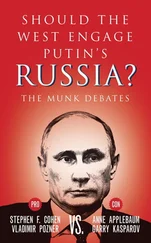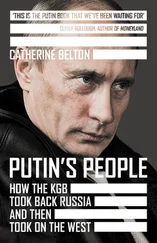There is an almost Shakespearean profusion of corpses on the stage of Putin’s presidency—the journalist Anna Politkovskaya, gunned down just after entering her apartment building; former KGB man Alexander Litvinenko, wasting away from polonium poisoning in London; opposition leader Boris Nemtsov, shot dead in sight of the Kremlin. Still, there’s little chance of Putin ever being implicated in those crimes.
Putin doesn’t have to ask: Who will rid me of this meddlesome person? No direct orders from Putin are necessary for this, no winks, no nearly imperceptible nods (except, one assumes, for murders committed on foreign soil). Before himself being assassinated, former KGB agent Alexander Litvinenko explained how such assassinations are conceived and carried out now under Putin as opposed to in Soviet times. Back then, the KGB was tightly controlled by the party’s Central Committee. Nothing as important as a killing was possible without direct party approval and control. Now it’s the opposite. There’s no party, no Central Committee to which the security services must kowtow and report. It’s all much more relaxed, informal, humdrum. As Litvinenko tells it, deals are made in the lunchroom: “I’m having a little soup and a guy from another section walks over and says: ‘Sasha, you got any criminal connections?’ ‘I do,’ I say. ‘Listen,’ he says, ‘there’s this guy I’m sick of, get rid of him for me.’” [405] Vladimir Bukovsky, Nasledniki Lavrentiya Beria (Moscow: Algoritm, 2013), p. 155. My translation.
In Dostoevsky’s novel The Brothers Karamazov the half-wit half brother Smerdyakov, sensing his brothers’ hostility and murderous intent, carries out their secret wish and kills their father. There is a sort of Smerdyakov effect at work in Putin’s Russia. Divining the leader’s unspoken desires, the little Smerdyakovs of the security services have no trouble finding criminal types to do the dirty work and, if necessary, take the fall.
Putin doesn’t order hits, because he doesn’t have to. It can all be settled by a couple of guys over a bowl of soup.
* * *
Putin is the richest man in Russia. Putin is the richest man in Europe. Putin is the richest man in the world. There are many estimates of Putin’s wealth but what they are actually based on is unclear to say the least. Apparently, Swedish economist Anders Aslund and the CIA working independently came up with the same figure, $40 billion, which has now become somewhat canonical. However, Bill Browder, who once ran the largest investment fund in Russia before he was swindled out of it and declared persona non grata, quintupled that canonical estimate to $200 billion in his 2015 book Red Notice . One more such quintupling leap and Putin will be the first trillionaire in history.
But all these various estimates overlook the most important thing, which is that if Mr. Putin is out of power, then he’s out of pocket as well. His control of portions of Russia’s largest companies would instantly evaporate with his loss of office.
If Putin was able to leave Russia, then the question would become—where would he live and on what? If his principal concern was extradition, there are any number of countries from Brazil to Dubai where he would be safe. Many countries have fast tracks to citizenship for those who buy property, deposit money in local banks, or otherwise invest. It’s possible that some deal for sanctuary could be, or has already been, worked out. The problem for Putin would not be finding a country that would accept him and not extradite him to Russia, which doesn’t extradite its own citizens either. A more pressing problem would be what would support the former president in something like the style to which he has grown accustomed. Putin may well have foreign accounts containing dollars or euros, but bank accounts can be frozen and access to safe-deposit boxes denied. For that reason leaders like Putin tend to favor tangible things and thus put their trust in gold and land.
In June 2011 Putin became the only Russian president ever to visit the nation’s main gold depository, located in central Moscow. A photo shows him holding up a twenty-pound ingot with one hand as his entourage looks on with smiling approval. Putin too seems to be enjoying the moment, the heft of the bar, the density of its concentrated wealth. In itself this of course proves nothing, but there are other, more significant indications of his interest in gold. Under Putin Russia became for a time the world’s top buyer of gold, acquiring over 600 tons in the decade between 2004 and 2014. Despite the economic problems caused by oil prices and sanctions, or perhaps because of them, Russia became the world’s number one gold purchaser in 2015 and in early 2016 was buying 500,000 ounces a month.
Russia also produces considerable gold—291 tons were mined in 2015, 208 of which were added to the nation’s central bank reserves. The gold produced within Russia is shipped by FeldSvyaz, a courier service that reports directly to Putin. How difficult would it be for Putin to arrange to have a certain percentage skimmed off the top and have it shipped abroad for safekeeping? Gold is not as cumbersome as might be imagined. A million dollars in gold bars is only three times heavier than its equivalent in U.S. hundreds and is virtually untraceable.
Where might that gold be? An early 2016 New Yorker article, “The Bouvier Affair” by Sam Knight, about the fleecing of a Russian oligarch, offers one clue:
The Geneva Freeport, which may be the world’s most valuable storage facility, consists of seven beige warehouses and a large grain silo in La Praille, an industrial zone a short tram ride from the city’s lakeside panorama of banks and expensive hotels…. Iris scanners, magnetic locks, and a security system known as Cerberus guard the freeport’s storerooms, whose contents are said to be insured for a hundred billion dollars…. The freeport is eighty-six percent owned by the local government—and kinship with the opaque traditions of Swiss banking made it a storage facility for the international elite. Under the freeport’s rules, objects could remain in untaxed limbo, in theory, forever. Treasures came and they did not leave. A generation ago, those goods were cars, wine, and gold. [406] Sam Knight, “The Bouvier Affair,” New Yorker , February 8, 2016.
Putin may also be funneling wealth out of the country to his children. In late 2015 there were reports that Putin’s daughter Ekaterina was buying a luxury property in Biarritz, the elegant resort on the Atlantic side of the South of France where Putin was living very modestly in the summer of 1999 when Boris Berezovsky came to convince him to accept the post of prime minister. That would make a nice full circle.
Putin has also maintained close ties with European leaders like former Italian prime minister Silvio Berlusconi, who could have proved useful in assisting Putin in transferring wealth out of Russia.
But not all scenarios need end as ignominiously as those with Putin scampering away to Biarritz or some such place with bags of cash. A man extremely favored by fortune in his rise to power, he could yet prove favored again. The exploitation of the Arctic could stave off disaster for another generation.
Or a military intervention in Kazakhstan might provide the Kremlin with leverage over China, thereby completing the task of restoring Russia’s greatness by restoring Russia’s power.
Even if these unlikely glories are attained, they will, however, only temporarily obscure the failure at the core of Putin’s reign.
Putin was given a unique opportunity by history, a period of wealth and peace that he could have used to liberate his country from its dependence on oil and on authoritarian rule. He squandered that opportunity to unleash the source of Russia’s true greatness—the still untapped skills and spirit of its people. Was not his own career sufficient proof of how high an ordinary Russian could rise?
Читать дальше
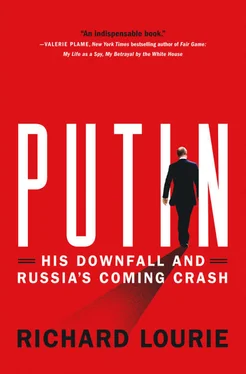

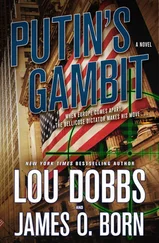
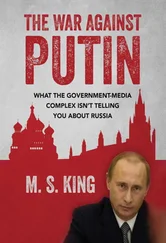
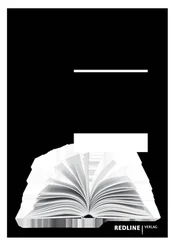
![Stephan Orth - Behind Putin's Curtain - Friendships and Misadventures Inside Russia [aka Couchsurfing in Russia]](/books/415210/stephan-orth-behind-putin-s-curtain-friendships-a-thumb.webp)

